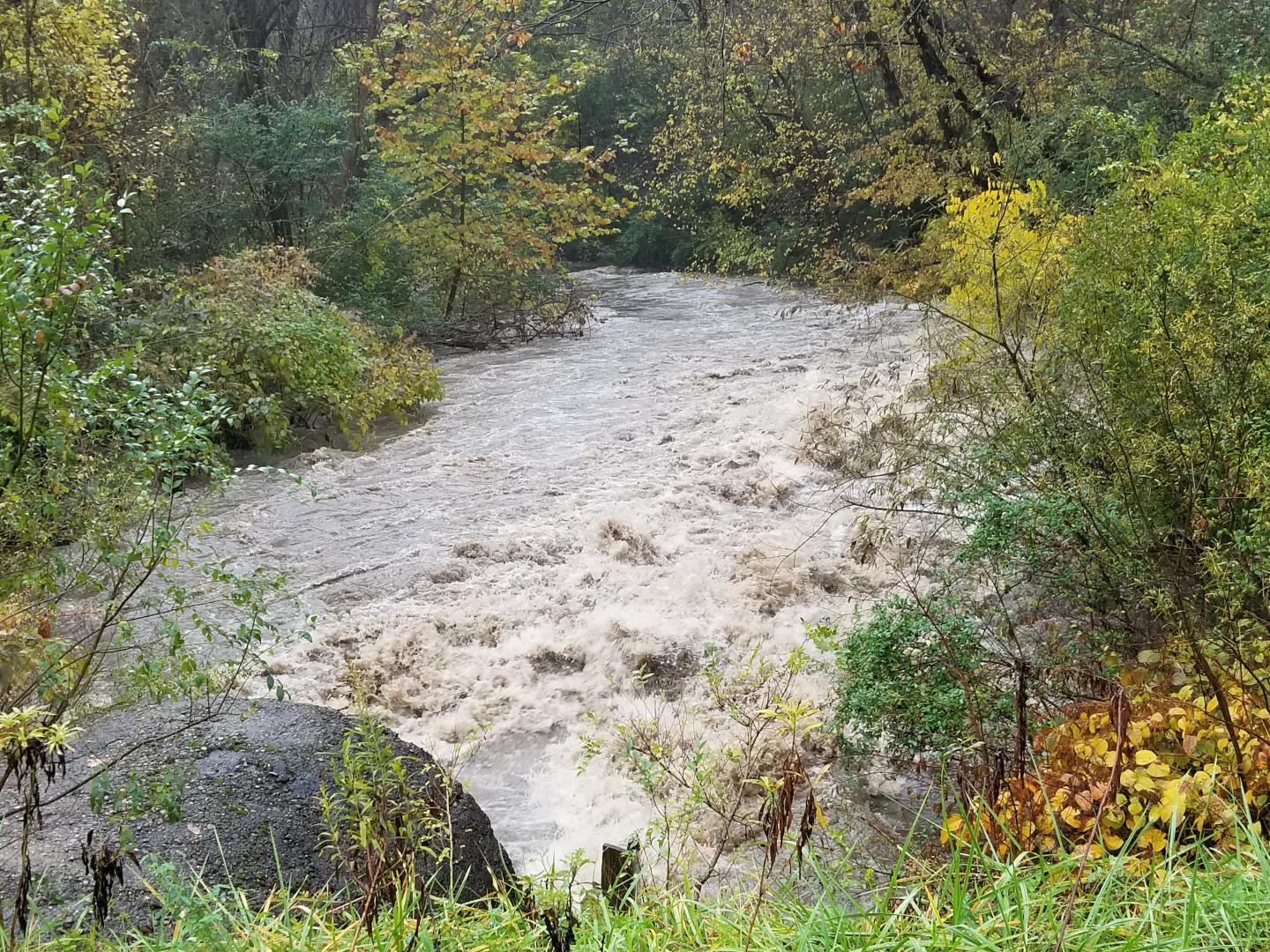Stakeholders have a new roadmap to help understand the most important challenges in regional stormwater management

Credit: Emily Elliott
PITTSBURGH–Stakeholders invested in the region’s waterways, stormwater management and green infrastructure have a new roadmap to help understand the most important challenges they’re facing and how to outline the most effective solutions.
The Pittsburgh Collaboratory for Water Research, Education and Outreach, which was founded in January 2018 by faculty out of The University of Pittsburgh Department of Geology and Environmental Science with support from The Heinz Endowments, has released the white paper, “Green Infrastructure for Stormwater Management: Knowledge Gaps and Approaches.”
The paper is an effort to help stakeholders identify the types of data needed to guide the most useful research about regional stormwater management and green infrastructure efforts and the best means of sharing that data.
At the moment, green infrastructure projects such as rain barrels or infiltration designed to capture and reroute storm water are underway in several different municipalities and townships in an effort to keep stormwater from flooding sanitary systems and spilling into clean waterways. Communities are using several different approaches but there’s no way of knowing the positive and negative effects they’re making upon their own waterways and those in other communities.
The International Stormwater Best Management Practices Database, which is designed to share data from green infrastructure projects across the globe, only features 11 entries from Pennsylvania with none from the Western Pennsylvania region, according to the study.
“There are a lot of eggs in the green infrastructure basket. It’s important we’re able to evaluate whether it’s working, and right now, we don’t have the data to do that,” said director Emily Elliott. “There’s a concern that all this money is being spent on green infrastructure projects but nobody’s keeping track of whether it’s effective or not, which approaches work best or how these systems can be modified to handle the region’s unique geological, soil and water conditions.
The white paper’s recommendations are based on a November meeting of 32 stakeholders that included representatives from the Allegheny County Sanitary Authority and the Pittsburgh Water and Sewer Authority. The meeting was designed to determine the most significant knowledge gaps in “planning design, installation, monitoring and maintenance” of southwestern Pennsylvania’s green infrastructure, as well as the best ways to fill those gaps with collaborative research.
A consensus-building exercise at the meeting determined that a centralized database that allows researchers to examine maintenance costs, economic benefits and water quantity/quality impacts, as well the benefits and drawbacks of methods and technologies used by individual local governments, would be one critical tool to help stakeholders better understand if their efforts are making the best possible impact.
The paper’s recommendations include creating a regional green infrastructure database and a means of managing the tool, establishing standards to monitor how green infrastructure impacts community waterways, ecology, finances and social life, and pushing toward a comprehensive approach toward green infrastructure that improves waterways across the region.
An executive summary of the work emphasizes the need for buy-in from major institutions to help collect and organize data, and notes the importance of analyzing data in ways that address how all members of a community are impacted.
“The questions asked about green infrastructure need to be approached in a comprehensive context. For example, in addition to reducing stormwater runoff to sewer systems, green infrastructure installations can also impact nearby residents both negatively (wetter basements) and positively (increased green space). Decisions regarding future infrastructure need to fully consider these effects.”
###
To read the full white paper, visit (http://dx.
Contact: Deborah M. Todd, University of Pittsburgh News Services
[412-624-6687 (office); 412-519-5965 (cell); [email protected]]
Media Contact
Deborah Todd
[email protected]




